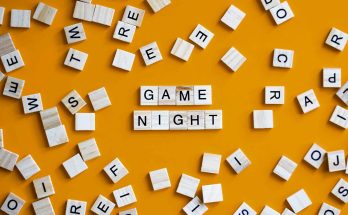Word puzzles have taken over the digital world. Once exclusive to newspapers and magazines, these games have a new home online, captivating players worldwide. There are several reasons for this comeback, including technological advancements in gaming, accessibility on multiple devices, and people’s love for language and problem-solving. In this article we will take a closer look at how word puzzles have changed over time, what impact being online has had on their popularity, and what role they play in modern gaming culture.
Evolution of Word Puzzles
Traditional Roots
Word puzzles have been around for centuries. From ancient Egyptian civilization to Greek times to medieval Europe people always seemed to be entertained by them. Early examples include acrostics (poetry where initial letters spell out words), word squares (a list of words that can be read vertically or horizontally), and anagrams (rearranging the letters of a word to make another one). They were often used for entertainment and intellectual stimulation.
Rise of Print Media
Print media also played no small part in the popularization of word puzzles. Newspapers and magazines started featuring crosswords along with other types of games in the 19th century, proving a hit among readers looking for mental challenges or fun activities.
Transition to Digital
Then computers came around. By coming up with interactive ways to play traditional puzzles, developers created opportunities for today’s digital era. The early days of websites saw software applications offering revamped versions of classic games. That was just the beginning though.
Impact of Digitalization
Accessibility
One reason why digital word puzzle games are so popular is because they’re very accessible. Unlike print copies you would need to buy from stores or newsstands before sitting down in one spot to play them— these online versions are available wherever you want as long as you have your device handy whether it be a phone, tablet or computer. Word puzzles have never been so easy to play until now.
Interactivity and Engagement
Digital word puzzle games have features that traditional versions just can’t compete with. For example, real-time feedback, hint systems, and interactive interfaces make it more fun to play while keeping the players engaged since they’re constantly getting instant feedback. Then there are social elements like online leaderboards, multiplayer settings, and community forums which create a sense of camaraderie among players.
Innovation and Variety
Digital platforms give creators access to endless possibilities. There is always room for experimenting with new game formats, themes, and challenges. As seen with cryptic crosswords (crosswords that give you a clue instead of just straight up telling you what the answer is) or word jumbles (randomly rearranged letters that need to be arranged into a word), variety in puzzles keeps people coming back for more.
The Role of Word Puzzles in Gaming Culture
Mental Stimulation
Word puzzles do not simply entertain; they also stimulate our minds and improve cognition. Research shows that these types of games are good for memory improvement, concentration enhancement and problem-solving skills development, overall making them a great activity for keeping the mind sharp.
Educational Value
Puzzles have been recognized in education settings as helpful tools towards language learning or literacy development. They engage with spelling vocabulary grammar all through a fun interactive way, which is perfect for anyone who struggles when trying to learn those things on their own time or in class at school.
Community and Connection
Word puzzles are great for a lot of reasons. They get people working together, whether its to solve a tough one or just trying to beat each other’s times on the leaderboard. The passion for word puzzles brings people from all over together to work with and against each other in friendly competition. It’s pretty impressive how online forums, social media groups, and gaming communities have been able to make that happen too.
Read More: From Scrabble to Smartphones: The Evolution of Word Games
Conclusion
The digital revolution has redefined what we thought word puzzles could be. Being able to pick up any device and access these games at any time is a breath of fresh air compared to having to buy books or go somewhere where they’re available in print form. The fact that you can also share your progress, strategies and wins with others so easily makes this even better. As technology advances, I hope word puzzles continue being popular because it’d be a shame if it didn’t stay around for future generations.



